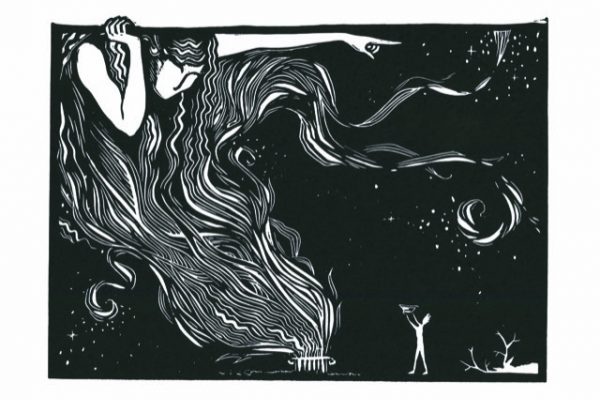Amy Jeffs
Storylands

Britain is rich with ancient tales. They link us to our past and can remind us that the things that seem most transient can endure, while those that seem fixed are often transient.
The beautiful Deirdre was said to have fled Ireland to the arms of her warrior lover Naoise at Glen Etive to find a little happiness before their untimely ruin.
Princess Theneva, daughter of King Lot, was tied to a chariot and cast from Traprain Law after falling pregnant to the young King Owen of North Rheged. Her miraculous survival led to the birth of St Kentigern (aka St Mungo).
In around 565 AD St Columba encountered a beastie in the River Ness while on his way to meet a Pictish monarch.
Brief lives, eternal tales.
And all are part of the folklore that helped give Scotland its cultural identity, despite the fact that they concern people and kingdoms that existed long, long before the such a nation state was established.
This is one of the things that interests author and academic Amy Jeffs who will be discussing her book Storyland at this year’s Wigtown Book Festival. She has gathered and retold wonderous tales from all across Britain in a way that makes them accessible for today’s reader – while also providing commentaries so people can dig deeper, discover their origins and find much older versions.
She also points out where her versions vary from the sources material (which itself evolved and developed many times to suit different eras and audiences). But this is no Angela Carter-esque subversion and inversion of the tales. Amy says it’s more like “shifting the camera to the other shoulder”.
One thing that she adores about the stories is how often they will leave something wide open for the imagination. Geoffrey of Monmouth’s mid-12th century writings have Merlin offering up a throwaway remark about the great monoliths used for Stonehenge – explaining that they were brought from remotest Africa by giants before the great flood.
Amy says: “It's like, there's this whole other story in there. Hang on, back up, I want to know about the giants from Africa. Who were they and what were they doing?”
A substantial number of the tales in Storyland are from Scotland (or the kingdoms it would eventually be forged from) and some have even been part of the process of identity-building. There are some tales to bind groups together and others to mark them apart.
This too is one of Amy’s interests.
“I have a bit of an identity crisis about what it means to be British and from Britain. Am I English? Am I British? How would you define yourself? And on a more global level, what does nationhood means?
“Are these definitions fixed? Should be fixed and to what extent are they useful? Are they working categories so that we can get on with our lives? And when have we taken them too Seriously?
“It's kind of an exercise in identifying some of this. And it feels highly relevant now.”
Storyland is a book on many levels. If you simply want to follow Merlin into the Caledonian Forest or revel in how the severed head of a toothy Orcadian got revenge on a Viking warrior it’s all there. You can even marvel at why Kenneth MacAlpin (revered as Scotland’s first king) sneaked into his barons’ bedrooms at night dressed in fish skins.
Or you can pull back the veil and glimpse intriguing clues as to how the many peoples who have lived in Britain attempted to explain their origins, worlds, values and religious ideas. And also how much we share with our ancestors in our ideas about what makes a right riveting story.
You can hear more from Amy Jeffs at her Wigtown Book Festival event. You can purchase a copy of Storyland from our online bookshop.